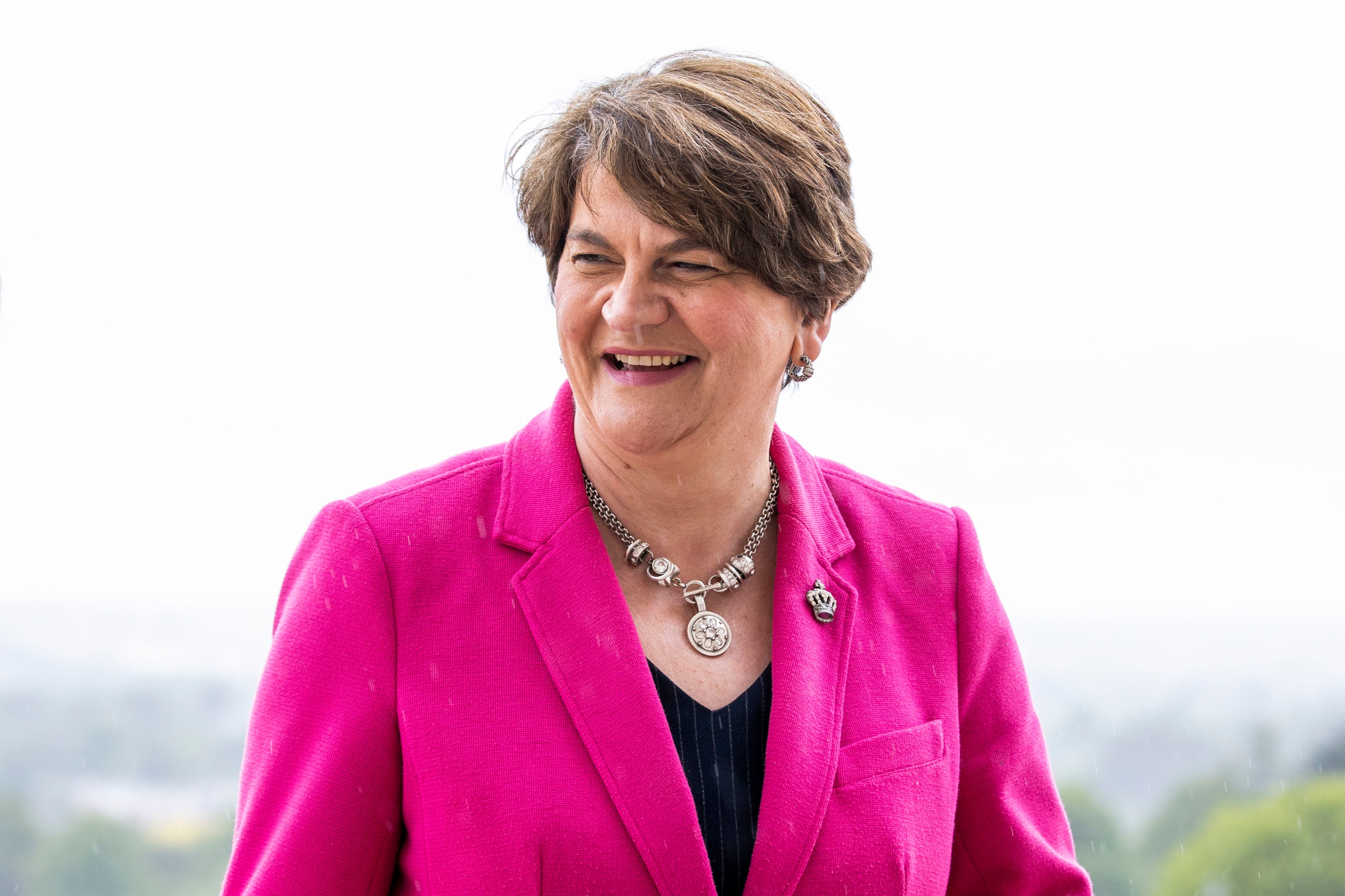The Top 10: Leaders Who Left Their Parties
We can’t rule out Arlene Foster rejoining the DUP and leading it again, but in the meantime, here’s a list of heroes to zeroes


Your support helps us to tell the story
From reproductive rights to climate change to Big Tech, The Independent is on the ground when the story is developing. Whether it's investigating the financials of Elon Musk's pro-Trump PAC or producing our latest documentary, 'The A Word', which shines a light on the American women fighting for reproductive rights, we know how important it is to parse out the facts from the messaging.
At such a critical moment in US history, we need reporters on the ground. Your donation allows us to keep sending journalists to speak to both sides of the story.
The Independent is trusted by Americans across the entire political spectrum. And unlike many other quality news outlets, we choose not to lock Americans out of our reporting and analysis with paywalls. We believe quality journalism should be available to everyone, paid for by those who can afford it.
Your support makes all the difference.Thanks to Will Cooling for this one. In reverse chronological order, because the idea for the list was born of the leadership turmoil in the Democratic Unionist Party.
1. Arlene Foster, DUP. Ousted as leader by Edwin Poots last month, she explained why she was leaving the party: “Because I don’t agree with the direction of travel under Edwin’s leadership.” Nor, it turned out, did most of the people who ditched her in Poots’s favour. Poots is now a candidate for Top 10 Shortest Terms in Office.
2. Alex Salmond, Scottish National Party. A seven-year gap between his ceasing to be leader after losing the independence referendum in 2014 and forming his new party, Alba, in March 2021, which won nul seats in May. Nominated by Conor Downey
3. Jeremy Corbyn, Labour. Excluded himself from the Parliamentary Labour Party by misjudging his response in October last year to the Equality and Human Rights Commission report on antisemitism in the Labour Party under his leadership.
4. Nigel Farage, Ukip. He left the UK Independence Party in December 2018 and became the Brexit Party leader in March 2019. Nominated by Conor Downey and Richard Morris. Lord Pearson, Diane James, Paul Nuttall and Henry Bolton also led Ukip and then left it, which might be a record, said Stewart Slater.
5. Naftali Bennett, The Jewish Home. Sworn in this week as prime minister of Israel, Bennett was leader of The Jewish Home before breaking away in 2018 to form the New Right, which is now the sole member of the umbrella group Yamina: its list won six seats in the Knesset in the March election – three months later he usurped Benjamin Netanyahu. Thanks to Steven Fogel.
6. Ariel Sharon, Likud. As leader and prime minister left his party in 2005, over his policy of unilateral disengagement from the Gaza Strip, to form a new party called Kadima. He suffered an incapacitating stroke before the next election was held. Nominated by Don Macintyre.
7. David Trimble, Ulster Unionist Party. Another first minister of Northern Ireland who left his party. Resigned as leader after losing his House of Commons seat in 2005 and joined the Conservative Party as a member of the House of Lords in 2007. Another from Will Cooling.
8. Ramsay MacDonald, Labour. He went into coalition with the Conservatives, forcing his party to expel him and three of his cabinet colleagues while he was prime minister. Nominated by Jon Patience, Richard Morris and Paul T Horgan.
9. Theodore Roosevelt, Republican Party. Yes, the US party system is different, but Roosevelt was a Republican president for seven and a half years until 1909, when he handed over to William Taft, his chosen successor, before deciding to have another go. Formed the Progressive Party when he failed to regain the GOP nomination for the 1912 election. Thanks to Will Cooling, Stewart Slater and Cole Davis.
10. John Tyler, Whig. He was expelled from the Whig party in 1841 while president – “see my chapter in the forthcoming Iain Dale book on US presidents,” said Peter Riddell.
Honourable mentions for Jonathan Isaby, who nominated Lembit Opik, a former leader of the Welsh Liberal Democrats 2001-07, expelled from the party last week for advising Conservatives on how to beat it; for Stewart Slater, who nominated Antonis Samaras, sacked as Greek foreign minister, left the New Democracy party to set up and lead Politiki Anoixi (Political Spring) in 1993, which led to the collapse of the government – 11 years later, he shut down his party, rejoined New Democracy, became leader in 2009 and prime minister 2012-15; and for Paul T Horgan, who nominated George Barnes, Labour leader for a year 1910-11, and a member of Lloyd George’s war cabinet who stayed in office when Labour left the coalition to fight the 1918 election, in which he ran as leader of the National Democratic and Labour Party, with Lloyd George’s approval, and held his seat.
Next week: Oddly named railway stations, current or past, such as Whatstandwell in Derbyshire and Wait-A-Bit in Jamaica.
Coming soon: Actors who were younger than you’d think, such as Lionel Jeffries, 42 when he played grandpa Potts, six months younger than Dick Van Dyke, his fictional son in Chitty Chitty Bang Bang.
Your suggestions please, and ideas for future Top 10s, to me on Twitter, or by email to top10@independent.co.uk
Join our commenting forum
Join thought-provoking conversations, follow other Independent readers and see their replies
Comments